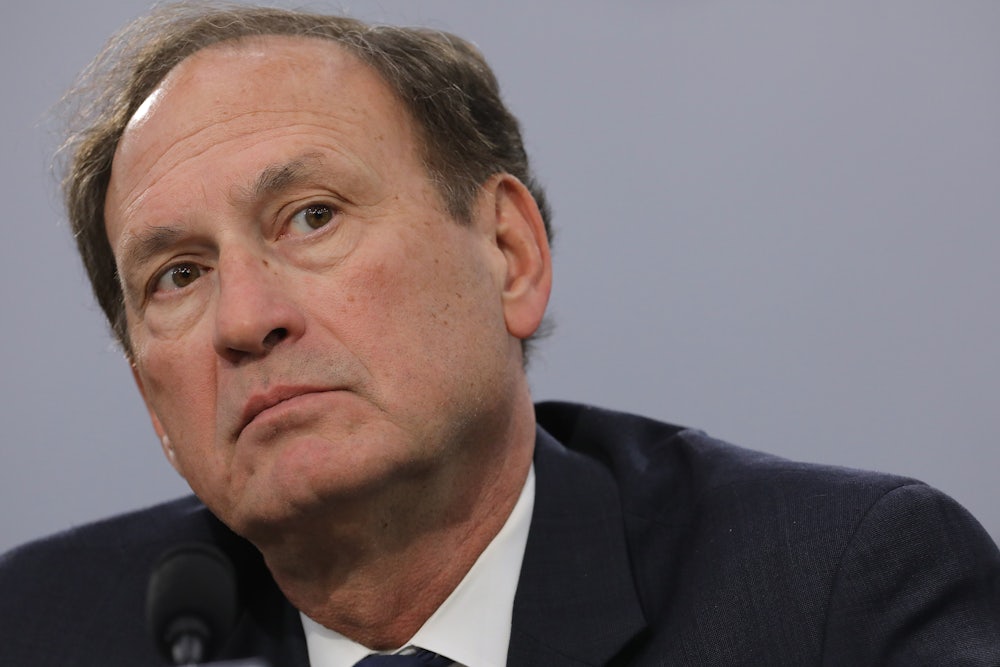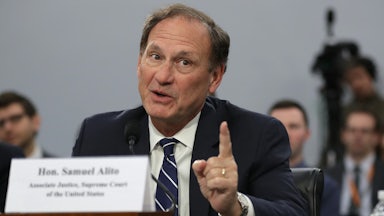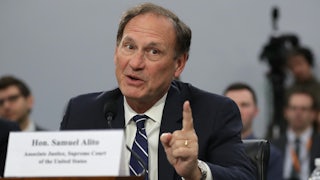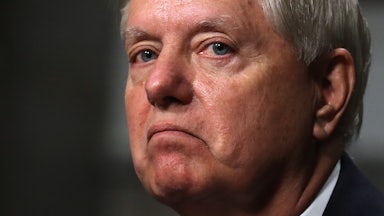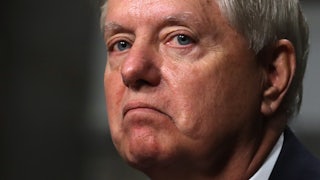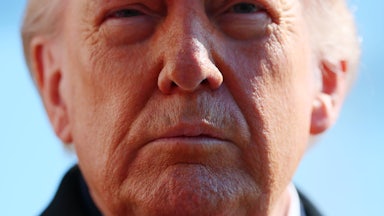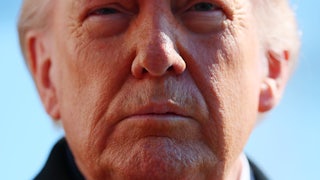The Supreme Court handed defeats to Republican state lawmakers in two states on Tuesday night by refusing to overturn court-drawn maps for the 2022 midterm elections. The ruling is a blow to conservative efforts to reassert control over the once-in-a-decade redistricting process in two key battleground states. But while they lost the battle on Tuesday, they may ultimately end up winning the war in a future case if some of the court’s conservative justices have their way.
The two cases, Moore v. Harper and Toth v. Chapman, are GOP-led challenges to state supreme court rulings on their redistricting process. In Moore, Republican lawmakers asked the justices to throw out an expert-drawn map chosen by the North Carolina Supreme Court. The state Supreme Court adopted the map after it struck down the state legislature’s own map on partisan gerrymandering grounds.
Toth, the Pennsylvania case, also involves a map chosen by the state Supreme Court. Pennsylvania’s Republican-led legislature approved a new congressional map last year, but it was vetoed by Governor Tom Wolf, a Democrat. The Pennsylvania Supreme Court adopted a new, expert-drawn map to resolve the deadlock. It also ordered state election officials to adjust filing deadlines and other imminent election-related dates to accommodate the new map.
In both cases, Republican state lawmakers asked the justices to use something known as the independent state legislature theory to strike down the court-ordered maps and reinstate the ones they preferred. The once-obscure legal theory has its fair share of critics and flaws. But thanks to a favorable bloc of justices, it could ultimately become the law of the land.
What is the independent state legislature theory, or ISL theory for short? The Elections Clause in Article One states that the “times, places, and manner of holding elections for senators and representatives shall be prescribed in each state by the legislature thereof; but the Congress may at any time by law make or alter such regulations, except as to the places of [choosing] senators.” In other words, states set the guidelines and procedures for conducting federal elections in their borders, but Congress can overrule them and set national standards if it wishes to do so.
For most legal scholars, this simply means that the state legislature writes election laws as it would any other law—governors can veto them, state courts can interpret them, and so on. But the ISL doctrine says differently: In its view, the clauses’ reference to “the legislature thereof” amounts to an extraordinary grant of power to state lawmakers. ISL doctrine holds that when a state legislature writes an election law, state constitutions cannot bind it like a normal state law and state courts cannot definitely interpret it as they would for other state laws. Whether a governor could even veto it is unclear.
There are a few problems with this doctrine. For one, the Elections Clause in Article One doesn’t read as though its drafters meant to grant state lawmakers a special power to pass superlaws for elections. Its purpose appears to be limiting state power, not expanding it, by giving Congress the power to override state laws for federal elections at will or set them by default. From an originalist perspective, legal scholars have found ample evidence that the Framers did not intend to carve state constitutions or state courts out of the process. Vikram D. Amar and Akhil Amar, two of the nation’s top constitutional law scholars, recently described the ISL theory as “rubbish” and “utterly indefensible.”
To make matters worse for ISL proponents, not only has the Supreme Court never endorsed this reading of the Elections Clause, but all of its readily available precedents point in the opposite direction. The most recent was Arizona State Legislature v. Arizona Independent Redistricting Commission, in 2015. In that dispute, a group of state lawmakers argued that a state constitutional amendment, which had transferred the legislature’s redistricting power to an independent commission, violated the Elections Clause. The Supreme Court rejected that argument in a 5–4 ruling. “The dominant purpose of the Elections Clause, the historical record bears out, was to empower Congress to override state election rules, not to restrict the way States enact legislation,” Justice Ruth Bader Ginsburg wrote for the court.
But ISL proponents have one advantage that their many critics do not: Some of the current justices on the Supreme Court appear to agree with them. In a concurring opinion in Bush v. Gore in 2000, then–Chief Justice William Rehnquist, joined by Justices Antonin Scalia and Clarence Thomas, used the ISL theory’s reasoning to explain why they voted to overrule the Florida Supreme Court and block further recounts. Justice Neil Gorsuch, joined by Justice Brett Kavanaugh, adopted the ISL theory in a 2020 shadow-docket dispute over Wisconsin election laws. “The Constitution provides that state legislatures—not federal judges, not state judges, not state governors, not other state officials—bear primary responsibility for setting election rules,” Gorsuch wrote in a concurring opinion.
Justice Samuel Alito also expressed a similar view during a shadow-docket clash over absentee-ballot deadlines in Pennsylvania during the 2020 election. The Pennsylvania Supreme Court had extended the deadline in light of the Covid-19 pandemic. During that dispute, Alito wrote that the Election Clause’s grant of power to state legislatures “would be meaningless if a state court could override the rules adopted by the legislature simply by claiming that a state constitutional provision gave the courts the authority to make whatever rules it thought appropriate for the conduct of a fair election.” Along with Thomas, Gorsuch, and Kavanaugh, that would be four votes to read the ISL theory into the Constitution.
In his dissenting opinion on Thursday, Alito, joined by Thomas and Gorsuch, expanded on his reasoning a bit further. He argued that the Elections Clause has to be read favorably toward the ISL theory because the Framers did not explicitly rule it out. “This Clause could have said that these rules are to be prescribed ‘by each State,’ which would have left it up to each State to decide which branch, component, or officer of the state government should exercise that power, as States are generally free to allocate state power as they choose,” he wrote. “But that is not what the Elections Clause says. Its language specifies a particular organ of a state government, and we must take that language seriously.”
It’s not hard to see the flawed reasoning here. If anything, Alito’s “they could’ve written it differently” canon of constitutional interpretation cuts against him. Just as the Constitution could have read “by each State,” it also could have read “by the legislature thereof, and the state courts can’t do anything about it.” The norm, both in 1789 and in 2022, is that state courts interpret state laws. If the Framers had really sought to exclude an entire area of state law from state judicial review—especially an area as important as election law!—you’d think they’d have been a little clearer about it. This sort of logic is nothing new from Alito, the self-professed textualist who rewrote the Voting Rights Act of 1965 last term so right-wing state lawmakers could use voter fraud as a pretext for new restrictions.
Alito’s consistency is, well, inconsistent. In the North Carolina case, he said the court should have intervened because of the high stakes involved ahead of the 2022 election. “The applicants will be irreparably harmed if a stay is not granted because they will be deprived of their constitutional prerogative to draw the congressional map in their State, and the public interest will be disserved if the 2022 congressional elections in North Carolina are held using districts that we eventually determine were unconstitutionally imposed,” he wrote.
As others have noted, however, this concern wasn’t always foremost on Alito’s mind. He joined a concurring opinion by Justice Brett Kavanaugh just last month in Merrill v. Milligan that took the opposite approach. In that shadow-docket case, the court’s conservative justices allowed Alabama’s new congressional map to go into effect despite a lower court’s ruling that it amounted to a racial gerrymander in violation of the Voting Rights Act. “If the district court’s judgment is eventually affirmed after appellate review, the injunction can take effect for congressional elections that occur after 2022,” Kavanaugh wrote. To Kavanaugh’s credit, he stuck by that principle in the North Carolina and Pennsylvania cases, where the partisan valence was reversed. Alito did not.
Under the Supreme Court’s rules, only four votes are needed to take up a case. But it’s not yet clear if there are five votes to actually read the ISL theory into the Elections Clause. Justice Amy Coney Barrett, who missed almost all of the election litigation by the time she joined the court in 2020, hasn’t yet weighed in on the matter. And Chief Justice John Roberts’s own record doesn’t provide a clear indication of which way he will go. While he wrote the lead dissent in the Arizona redistricting case in 2015, he also used its holding to justify the court’s decision in a 2019 case that took the federal courts out of partisan gerrymandering cases. While they almost certainly won’t do it before this year’s midterms, some sort of action seems inevitable before the 2024 presidential election.
If the ISL proponents prevail, it would give state legislatures—which tend to trend Republican in recent years—far greater latitude to craft election laws. State supreme courts with liberal majorities, like those in North Carolina and Pennsylvania, would have far less influence over the process. And when combined with state-level partisan gerrymanders that often entrench one party’s control of the state legislature, adopting the ISL theory could further harden many states into effective one-party rule. It would be as fitting as it is tragic if the Supreme Court ultimately rewrites the Elections Clause to make elections more meaningless than ever.
